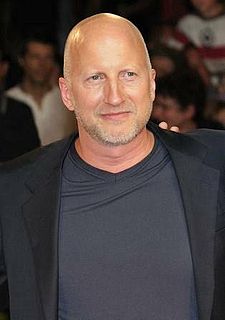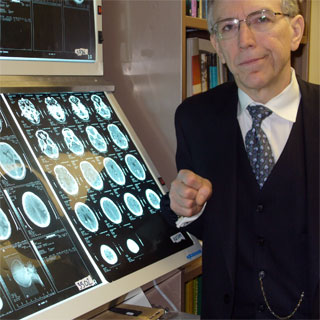A Quote by Victor Hugo
...Human thought has no limit. At its risk and peril, it analyzes and dissects its own fascination. We could almost say that, by a sort of splendid reaction, it fascinates nature; the mysterious world surrounding us returns what it receives; it is likely that contemplators are contemplated.
Related Quotes
There are three possible ways to react to right-wing extremist parties. The first is to act as though they don't exist and to no longer risk taking political initiatives that could get these parties against you. The second reaction is to chase after these right-wing extremist parties in fascination. The third is to say, these people are my true enemies and to engage them in battle.
Shakespeare carries us to such a lofty strain of intelligent activity, as to suggest a wealth which beggars his own; and we then feel that the splendid works which he has created, and which in other hours we extol as a sort of self-existent poetry, take no stronger hold of real nature than the shadow of a passing traveller on the rock. The inspiration which uttered itself in Hamlet and Lear could utter things as good from day to day, for ever.
In the unawakened state you don't use thought, but thought uses you. You are, one could almost say, possessed by thought, which is the collective conditioning of the human mind that goes back many thousands of years. You don't see anything as it is, but distorted and reduced by mental labels, concepts, judgments, opinions and reactive patterns.
That odd capacity for destitution, as if by nature we ought to have so much more than nature gives us. As if we are shockingly unclothed when we lack the complacencies of ordinary life. In destitution, even of feeling or purpose, a human being is more hauntingly human and vulnerable to kindnesses because there is the sense that things should be otherwise, and then the thought of what is wanting and what alleviation would be, and how the soul could be put at ease, restored. At home. But the soul finds its own home if it ever has a home at all.
The aim of the book is to set a limit to thought, or rather - not to thought, but to the expression of thoughts: for in order to be able to set a limit to thought, we should have to find both sides of the limit thinkable (i.e. we should have to be able to think what cannot be thought). It will therefore only be in language that the limit can be set, and what lies on the other side of the limit will simply be nonsense.
I use the word "god" a lot, and I'm not sure if I know what I believe god is. I don't believe that when we die, that's it. It's almost like a logical faith. I logically don't believe that all this stuff [surrounding us] is generated from dust. But I'm also not like "Jesus Christ came down to save us." It's almost selfish to think that human beings, on this plane of reality, are the end of it.






































